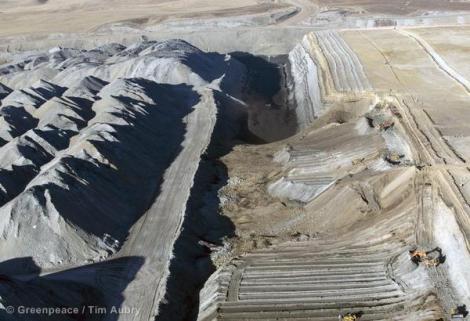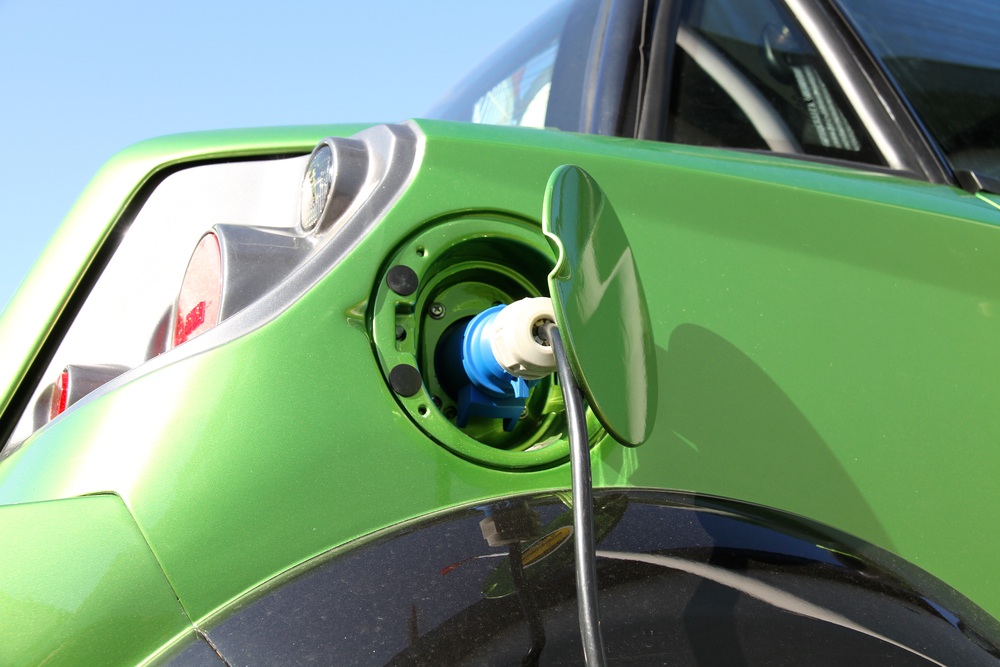Peabody held its annual shareholders meeting in Gillette, Wyoming on Monday, hoping to avoid more of the massive protests the coal company has faced at its headquarters in St. Louis. Indeed, while Peabody executives tried to put a positive spin on the company’s outlook for shareholders in Wyoming, thousands of union mine workers converged in downtown St. Louis to protest against Peabody and its efforts to cheat coal miners out of the pensions they were promised. The protest took place outside a bankruptcy hearing for ‘Patriot’ Coal, the company left with those obligations to retired miners and their families after Peabody and Arch spun off many of their mines.
Among those arrested alongside the coal miners was Van Jones, who recently joined United Mine Workers President Cecil Roberts and Green for All CEO Phaedra Ellis-Lamkins in a powerful joint statement, arguing that Patriot’s bankruptcy “appears to be part of a cynical plot by Peabody and Arch—a scheme choreographed to maximize profits at the expense of their own workers.”
But Peabody couldn’t escape the protests by moving its meeting to Wyoming; a group of UMW members rallied outside, and they were joined by Peabody shareholders affiliated with Powder River Basin Resource Council, Missourians Organizing for Reform and Empowerment (MORE), CO-FORCE (Coloradans for Fair Rates and Clean Energy), and Forgotten People from Black Mesa/Big Mountain in Arizona. Three activists were arrested, including one who dropped a banner that said, “Peabody Attacks: Pensions, Diné Lands, Climate,” highlighting the carbon pollution unlocked by Peabody’s coal mines, the company’s shameful treatment of retired mine workers, and the impacts of Peabody’s Black Mesa, Arizona strip mine on the health, land, and water resources of the Diné (Navajo) People.

A MORE activist drops a banner at Peabody’s annual meeting, April 29 2013. Photo courtesy of Missourians Organizing for Reform and Empowerment
Peabody’s strip mines in Wyoming are also damaging creeks and aquifers. LJ Turner, a Wyoming rancher who lives near the North Rochelle Mine said, “Peabody’s chickens have come home to roost. For too long, Peabody has ignored the true cost of its coal mines in the Powder River Basin, but now Congress and others are starting to pay attention to the impacts of mining on people, our air and land, and the climate.”
Hear more from LJ Turner in this video produced by Earthfix, part of their ‘Voices of Coal’ series:
Peabody denies that moving its annual meeting to Wyoming was about avoiding scrutiny, insisting instead it was “to show off its largest properties, including the North Antelope Rochelle mine,” and as Peabody’s press release states, to tout the company’s “leading position in the largest and lowest-cost U.S. coal region.”
So why are costs so low at Powder River Basin mines like Peabody’s North Antelope Rochelle?
Well, North Antelope Rochelle is a massive strip mine operation, the largest coal mine in the United States with 108 million short tons extracted last year. Like all of its coal mines in the Powder River Basin, workers at the mine are not represented by a union (Peabody sees union representation at its mines as a threat, warning in its annual report for investors, “If some or all of our current non-union operations were to become unionized, we could incur an increased risk of work stoppages, reduced productivity and higher labor costs.”)
Another major reason: Peabody is taking advantage of the absurdly cheap prices for publicly owned coal offered by the Bureau of Land Management’s corrupt coal leasing program. When it was originally leased in 1992, North Rochelle Antelope coal went for just 21 cents a ton. Last year, Peabody was able to expand this massive mine by adding the North Porcupine and South Porcupine tracts, paying just $1.10 and $1.11 a ton respectively. BLM explicitly justified its decision to lease those coal tracts because it claimed doing so would help “meet the national coal demand.” Yet Peabody executives are quite clear about their plans to export Powder River Basin coal abroad – a Peabody Vice President told the Casper Star Tribune that at Monday’s meeting, “company representatives planned to tell shareholders of the upside of potential plans to export coal around the globe.”
That “upside” is presumably Peabody’s desperate hope that it can stop losing money by selling more coal to Asian markets – if it can beat the broad and growing opposition to coal export proposals in the Pacific Northwest. In the “downsides” column for coal exports we might include mile-long coal trains disrupting communities and local economies, health impacts from coal dust and diesel pollution, threats to sensitive ecosystems and important fisheries, infringement on tribal rights, and enormous amounts of carbon pollution.

Peabody’s North Rochelle Antelope Mine in the Powder River Basin
So that’s Peabody: cheating workers out of the health care they were promised, and then dismissing their protests by declaring the matter “will be decided in bankruptcy court, not the court of public opinion.” Leasing coal owned by US taxpayers for around $1 a ton so it can strip mine it and ship it to Asia. Destroying aquifers used by Wyoming ranchers and Navajo People, and then refusing to even listen to their concerns. And all to extract coal that will end up polluting our air and water, dumping carbon pollution into our atmosphere, and acidifying our oceans.
It’s not hard to see why Peabody executives would try to hide their shareholder meeting in Wyoming; “the court of public opinion” is just a threat to their business model. A more important question is how long Peabody’s operations, and those of the rest of the coal mining industry, can continue to withstand the increased public scrutiny it is facing from citizens, journalists, and elected officials. Recent front page stories in the Seattle Times and Los Angeles Times show the impacts of coal mining in Montana, and how ranchers are fighting back against the industry’s coal export proposals. The federal coal leasing program is under three federal investigations, while the list of public officials calling for a comprehensive review of coal export proposals grows longer each month. And in recent weeks, over 135,000 people have joined the call for a moratorium on federal coal leasing, following a letter sent to Interior Secretary Sally Jewell on her first day on the job by the leaders of several environmental, health, consumer rights, and community organizations.
In other words, if the coal industry “require darkness” to pursue its plans for increased coal exports and leasing, let’s shine some more light.


